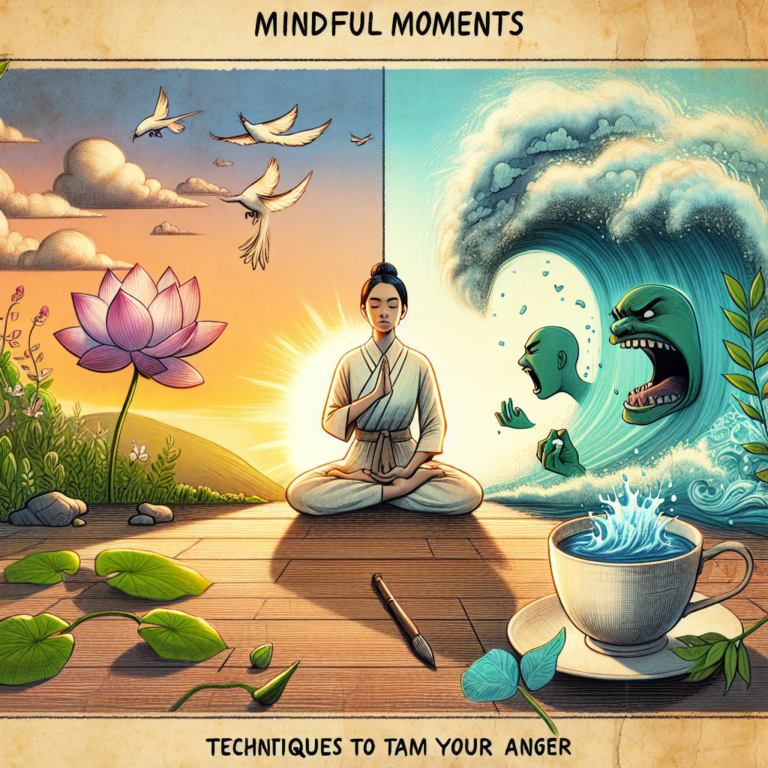
Navigating Life’s Pressures: The Essential Importance of Addressing Chronic Stress for Wellness
Introduction
In today’s fast-paced world, where deadlines loom and expectations soar, navigating life’s pressures can often feel overwhelming. Chronic stress, a silent pervasive force, can creep into our daily lives, affecting not just our mental health but also our physical well-being. It’s essential to understand that while stress can be a motivator, when it becomes chronic, it can adversely impact all aspects of our health. This article will delve into the importance of addressing chronic stress and offer practical insights on how to cultivate wellness amidst life’s inherent pressures.
Understanding Chronic Stress
What is Chronic Stress?
Chronic stress is a prolonged and constant feeling of stress that can adversely affect your health if left unchecked. It’s often a response to situations that feel unmanageable, whether from work, relationships, financial difficulties, or health issues. Unlike acute stress, which is a short-term response that typically resolves, chronic stress can linger, leading to a host of health problems such as anxiety, depression, and even physical ailments like heart disease.
The Biological Impact of Chronic Stress
The body’s response to chronic stress revolves around the release of hormones like cortisol. Prolonged exposure to elevated cortisol levels can lead to significant health risks, including:
- Weight Gain: Cortisol can trigger cravings for high-calorie foods, leading to unhealthy eating habits.
- Cardiovascular Issues: Chronic stress is linked to high blood pressure and increased risk of heart attacks.
- Immune System Suppression: The body’s ability to fend off illness becomes compromised when chronic stress takes over.
| Health Consequence | Effect of Chronic Stress |
|---|---|
| Weight Gain | Increased cravings and metabolism changes |
| Heart Health | Elevated blood pressure |
| Immune Response | Reduced effectiveness of the immune system |
Case Study: The Corporate Executive
Consider the case of John, a mid-level corporate executive. He faced immense pressure to meet deadlines, resulting in chronic stress that impacted his personal life. Over time, John started experiencing anxiety attacks and weight gain. After consulting a wellness coach, he developed strategies to manage his stress, including setting boundaries, practicing mindfulness, and committing to regular exercise. By addressing his chronic stress, John not only improved his mental health but also enhanced his work-life balance.
Recognizing the Signs of Chronic Stress
Emotional Symptoms
- Irritability: Feeling on edge or easily frustrated.
- Anxiety: Persistent worrying about daily concerns or future events.
- Fatigue: A constant sense of tiredness, making it hard to concentrate.
Physical Symptoms
- Headaches: Frequent headaches can be a direct result of stress.
- Digestive Issues: Stress can lead to problems like irritable bowel syndrome (IBS).
- Sleep Disturbances: Trouble falling asleep or staying asleep often plagues those with chronic stress.
The Importance of Self-Awareness
Self-awareness is crucial when navigating life’s pressures. Recognizing when stress becomes chronic allows for timely intervention. Keep a journal to document your feelings, noting triggers and symptoms. Awareness of your patterns can be the first step towards effective management.
The Connection Between Chronic Stress and Wellness
Physical Health Implications
The relationship between chronic stress and physical health is profound. As noted, chronic stress can lead to heart disease, diabetes, and a weakened immune system. Studies show that individuals with high stress levels have a significantly elevated risk of developing chronic diseases.
Psychological Effects
The psychological toll of chronic stress can be detrimental; it often leads to mental health disorders such as:
- Depression: Feelings of hopelessness can emerge as stress levels rise.
- Anxiety Disorders: Ongoing stress may cause or aggravate anxiety disorders.
By addressing these issues early, you can avert more severe repercussions in the long run.
Case Study: Sarah’s Shift towards Wellness
Sarah, a schoolteacher, noticed she was experiencing fatigue and anxiety. After a wellness seminar, she learned about mindfulness and its connection to stress management. Implementing these practices led to better emotional resilience and improved health metrics in just a few months. Sarah’s experience underscores the importance of addressing chronic stress and restoring balance.
Practical Strategies for Managing Chronic Stress
Mindfulness and Meditation
Mindfulness practices, such as meditation and deep-breathing exercises, can significantly relieve stress. They help ground your thoughts, allowing you to navigate life’s pressures more effectively.
Regular Exercise
Regular physical activity is one of the most effective stress relievers. Exercise releases endorphins, the body’s natural mood elevators. Aim for at least 30 minutes of moderate exercise most days of the week.
Healthy Eating Habits
A nutritious diet contributes to overall well-being. Foods rich in omega-3 fatty acids, antioxidants, and vitamins can help combat stress. Incorporating fruits, vegetables, nuts, and whole grains is essential.
| Strategy | Expected Benefit |
|---|---|
| Mindfulness | Decreased anxiety; improved focus |
| Regular Exercise | Enhanced mood; increased energy |
| Healthy Eating | Better physical health; weight management |
Connecting with Support Systems
Build a strong support system. Whether it’s friends, family, or therapy groups, discussing stressors with someone can alleviate feelings of loneliness and isolation.
Set Boundaries
Compartmentalize your time. Learning to say no and prioritizing tasks can aid in managing your stress levels effectively. Take breaks when needed, and don’t hesitate to delegate tasks.
The Role of Professional Help
Counseling and Therapy
If chronic stress becomes unmanageable, seeking professional help can prove invaluable. Therapists can provide coping strategies, therapeutic techniques, and emotional support tailored to individual needs.
Stress Management Programs
Many organizations offer workplace wellness programs aimed at stress management. Engaging in these programs can equip you with tools to address chronic stress proactively.
Case Study: The Role of Therapy in Recovery
Maria, an overwhelmed nurse, sought therapy after experiencing burnout. Through cognitive behavioral therapy (CBT), she learned to reframe negative thoughts and set realistic goals, which led to an improvement in her mental state and overall wellness.
Taking Control of Your Wellness Journey
Developing a Personal Action Plan
Create a personal wellness action plan that focuses on your specific needs and stress triggers. Regularly review and update this plan as necessary. Here are key elements to consider:
- Identify Triggers: Be aware of situations that elevate your stress levels.
- Establish Clear Goals: Set achievable wellness goals that are both realistic and motivating.
- Track Progress: Regularly assess your improvements and adjust strategies accordingly.
Engage in Lifelong Learning
Understanding chronic stress and its impact on wellness is an ongoing journey. Read books, attend seminars, and engage in online forums to expand your knowledge and stay updated on effective strategies.
Conclusion
Navigating life’s pressures involves a conscious effort to address chronic stress. It is crucial to acknowledge the significant role chronic stress plays in our lives and take proactive steps to mitigate its effects on our well-being. From incorporating mindfulness to seeking professional help, the pathways to wellness are varied and accessible.
Prioritizing your mental and physical health today will lay the foundation for a more balanced and fulfilling life tomorrow. Remember, the journey towards wellness is not a sprint, but a marathon—take it one intentional step at a time.
FAQs
1. What are common signs that I might be experiencing chronic stress?
Common signs include persistent anxiety, irritability, fatigue, headaches, and digestive problems. Documenting your feelings can help identify if you’re experiencing chronic stress.
2. How can I quickly diffuse a stressful situation at work?
Take deep breaths, momentarily step away to regroup your thoughts, and utilize mindfulness techniques. Communication with colleagues can also help clarify misunderstandings.
3. Is chronic stress the same as acute stress?
No, acute stress is short-term and often results from a specific event, while chronic stress lingers over a longer period and may stem from ongoing situations or pressures.
4. Can chronic stress be managed entirely on my own?
While self-management strategies can be effective, professional guidance is often beneficial for deeper issues. Therapy can provide tools to better handle stress.
5. How does chronic stress affect physical health in the long run?
Chronic stress may lead to serious health issues, including heart disease, obesity, and diabetes, as it can disrupt normal bodily functions and contribute to unhealthy lifestyle choices.
By recognizing and addressing chronic stress, you place yourself on the path to lasting wellness. Remember, navigating life’s pressures is an ongoing journey, and taking the first step is the most important part.















